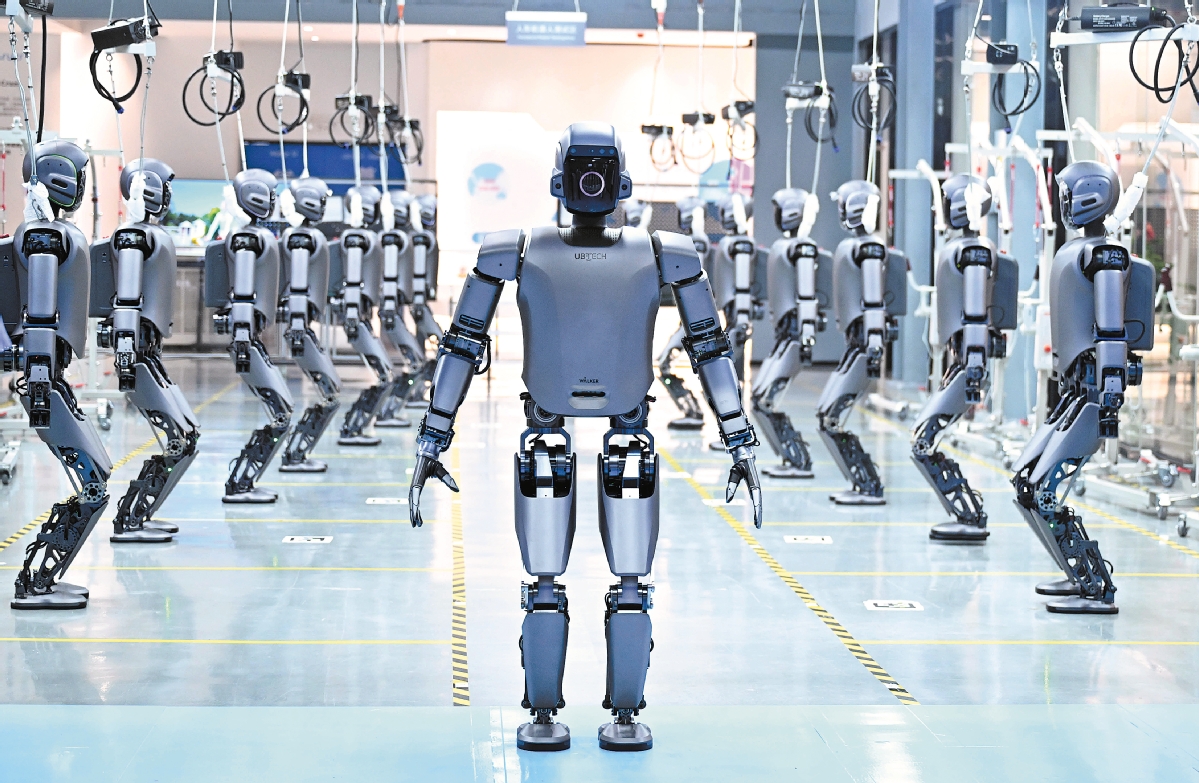
From clinching a sweeping 9-0 victory at the RoboCup German Open in March to gearing up for the RoboCup 2025 in Salvador, Brazil, in July, a Chinese humanoid robot soccer team has been capturing global attention.
At the heart of this excitement is the T1 robot, developed by Beijing-based humanoid robotics startup Booster Robotics, which is breaking new ground in performance and design.
Standing 1.2 meters tall and weighing 30 kilograms, the T1 robot's kicking and goal-keeping movements have been significantly upgraded. It is now capable of delivering powerful shots, executing free kicks and performing fluid, human-like motions.
Cheng Hao, founder and CEO of Booster Robotics, said the T1 model was specifically designed for developers with an emphasis on being lightweight, agile and exceptionally durable.
"For example, the robot can withstand hundreds of falls and still function without issue. To exaggerate a little, it can survive a rock-breaking stunt on its chest and stand up within a second," Cheng said.
The technical resilience and adaptability have helped the high-tech startup expand its market presence well beyond China. The company has already delivered hundreds of humanoid robots to customers worldwide, including in the United States, Germany, Switzerland, the United Arab Emirates and Japan.
Behind this impressive performance lies a broader story of patient capital and strategic financial support for the country's rapidly maturing robotics industry.
Earlier this month, Booster Robotics completed its series A funding round.
Cheng said the funds will be mainly used to accelerate product iteration, improve manufacturing processes and scale up production to meet growing market demand.

